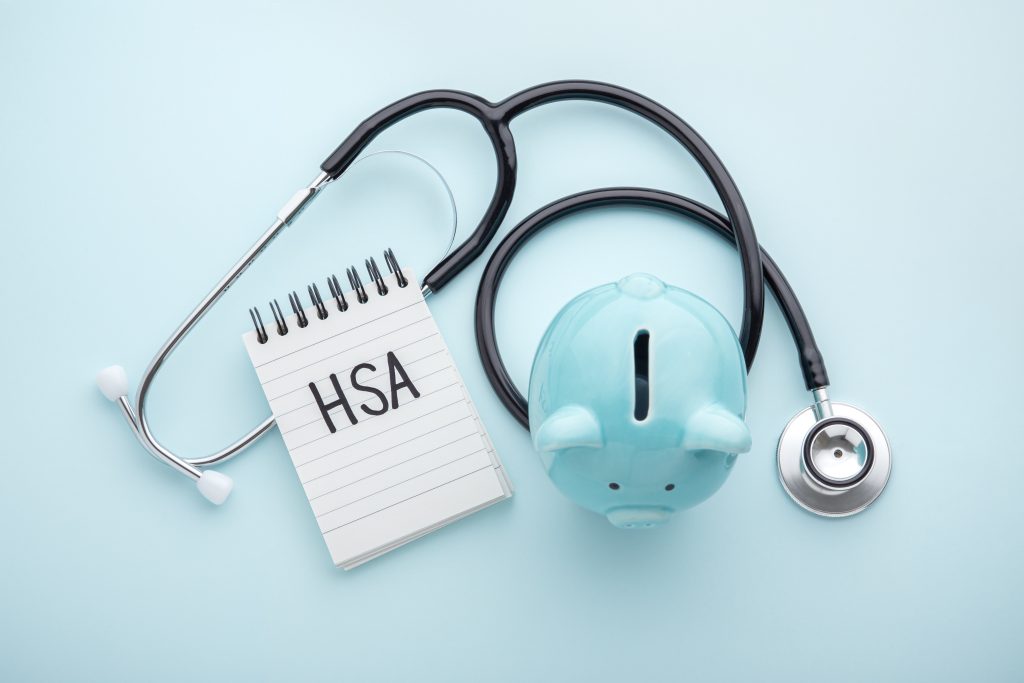Flex Spending and Health Savings Accounts: Which is Better for You?
Many health insurance plans offer an HSA or FSA. Both of these are tax free accounts set aside to pay medically related bills or or related expenses. With both an HSA and FSA, you pick a set “balance,” a portion is paid from your paycheck and put into the account. It is typically recommended that your initial balance is whatever your deductible is to help cover out of pocket expenses before your deductible is met.

What is covered by an HSA or FSA?
There is a set list of “eligible” items set by the IRS. This includes (but is not limited to):
– Medical Copays
– Prescriptions
– Most OTC Medicines (I.E. Acetaminophen, Ibuprofen, Acid Blockers, etc.)
– Home Medical Equipment (Blood pressure monitors, glucose monitors, oxygen, mobility devices, etc.)
– Fertility Treatments
– Vaccines
– Vision Care
– Prenatal care (including vitamins)
– Prescribed Vitamins
– Personal Items like wigs with a medical diagnosis
– Massage and Therapy with Medical Diagnosis
There are many other expenses you can get approved with doctor approval, however, it is important to not abuse your HSA or FSA as you can in fact get in trouble with the IRS for improper use!
What is a Flex Spending Account?
A flex spending account is only offered through an employer. They are a medical expense account used to cover eligible costs not covered by insurance. They are tax free and are technically owned by the employer. You can add up to $2,850 and have access immediately while paying a percentage taken out of each paycheck. If you leave your company for whatever reason before your account is used you forfeit that account to the company. If you use more than what you have paid and choose to leave before the end of the year you must pay back the difference. For instance if you have a $2850 plan, use $2000 and leave in March after only paying $605, you will owe $2245 upon dismissal from the company.
If you do not use the entire balance by the end of the year, you may run the risk of losing the remainder. An employer has three chooses if all funds aren’t used including:
- You lose the remainder of your balance immediately.
- $570 of the unused funds are carried over to the next year.
- They offer a 2.5 month grace period for additional funds to be used.
Make sure you know what your employer has chosen so that you do not forfeit those remaining funds.


What is a Health Savings Account?
A health savings account has similar benefits to an FSA, except you do not receive all of the funds upfront. You can use it for all of the same expenses and it is still tax free. Besides not getting all of the funds up front, the biggest difference is that an HSA belongs to you and can be taken with you when you leave a company.
With an HSA, you set an amount at open enrollment and pay into it with each paycheck, but you only have as much as you paid up to that point. Anyone can open an HSA even if you do not have health insurance through your company. To qualify, your deductible must have at least a $1400 deductible for self coverage or $2800 for family coverage. An individual can contribute up to $3,650 and $7,300 for a family plan. You also do not have to use your entire balance by the end of the year.
So, which is better?
Which is better is up to you. If you are a long time employee with no intentions of leaving a company and also have significant medical bills, a FSA is a great option as it helps you cover copays and other expenses until your deductible is met. A HSA is a great option if you don’t see yourself using all of your funds by the end of the year or you plan to leave your company.
What if I don’t have coverage?
If you don’t have any coverage yet, let me help you figure out what kind of coverage you need and get you set up with the perfect plan for your life! Whether you’re self-employed, work part time, retired, or just don’t like the options your employer offers, I can get you affordable insurance for all of your needs including an HSA!
Trust the expert in health insurance plans and give Sean the Insurance Guy a call today for insurance coverage in Montana, Wisconsin, Wyoming, New Mexico, Texas, Minnesota, Arkansas, Michigan, Indiana, Kentucky, Tennessee, Ohio, Maryland, North Carolina, South Carolina, Utah, Virginia, Washington DC, and Georgia!











